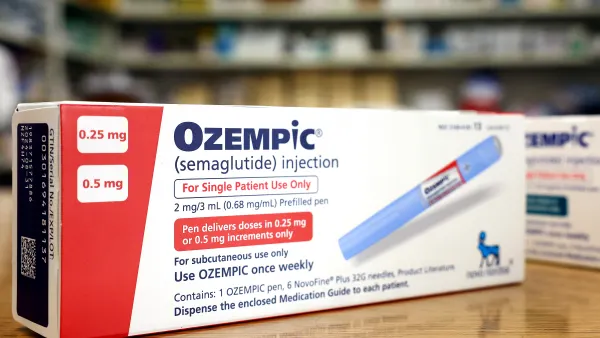As news of recalls and drug shortages mount, the FDA’s foreign drug manufacturing inspection protocols have entered the limelight.
During the first few years of the COVID-19 pandemic, the FDA postponed almost all of its foreign inspections, relying on other methods such as inspections by regulators and record reviews. A backlog of facilities needing inspections has now grown and a gap in the agency’s oversight program is drawing fresh attention from federal authorities.
Controversy around foreign inspections has been brewing for years. Even without the pandemic’s impact on inspections, the FDA faced criticism for having stricter standards for domestic manufacturing sites compared to those overseas, and persistent vacancies among U.S. staff who conduct foreign inspections. The issues have been well documented and ongoing since at least 2007 when the Government Accountability Office began reporting on the challenges of conducting inspections overseas.
Now, lawmakers are looking for answers.
“I’m concerned that the FDA is failing in its mission,” Representative Cathy McMorris Rodgers (R-Wash.), chair of the House Energy and Commerce Oversight and Investigations Subcommittee, said during a January hearing. “It is not adequately executing its foreign inspection program, which was questionable before the pandemic, became non-existent during the pandemic, and has seen little improvement since.”
The FDA was a no-show at the hearing, during which lawmakers heavily criticized the agency’s inspection practices. The GAO’s testimony rehashed much of what the it made known in January 2022, when it gave a report on foreign drug manufacturing inspections that was again highlighted in its April 2023 high-risk series, which identifies government operations with vulnerabilities to fraud, waste, abuse and mismanagement, or those in need of transformation.
A ‘tragic’ recall
Lawmakers were particularly worried about drug safety gaps, pointing to a recall last year of eye products manufactured overseas and sold at retailers like CVS Health, Rite Aid and Target that caused severe bacterial infections in some users.
“The outbreak affected 81 patients in 18 states, causing 18 individuals to lose their eyes or vision, and four others to lose their lives,” Rodgers said. “After this tragic incident, the FDA’s site inspection of the facility found unsanitary conditions, including a failure to clean equipment and failure to perform adequate batch testing.”
The outbreak laid the issue out bare — the FDA inspected only 6% of roughly 2,800 overseas manufacturers in 2022, compared to 37% of 2,500 foreign manufacturers in 2019. The contaminated eye drops originated from India, where the FDA inspected only 3% of manufacturers in 2022, compared to 45% in 2019, according to ProPublica. Another study found a 79% decrease in foreign inspections by 2022 compared to pre-pandemic figures.
The hearing allowed lawmakers to unleash on the agency's shortcomings, but it is also one of several ways Capitol Hill is cracking down on the industry. A Senate committee scrutinized big pharma tax breaks last year, and more recently, members of Congress pushed for tighter regulations around patent thickets.
Oversight concerns abroad
To improve its foreign manufacturing standards, the FDA will have to overcome several long-held challenges.
For example, foreign governments often require the FDA to announce inspections up to 12 weeks in advance. Domestic inspections, on the other hand, are almost always by surprise. By preannouncing, the FDA provides an opportunity for the establishment to fix problems before the inspection, and FDA investigators may not see the “true day-to-day operating environment of foreign establishments compared to domestic,” GAO said in its report to Congress.
Lawmakers noted during the hearing that even with lead time inspections still turned up compliance failures by foreign manufacturers.
“Prior to 2020, the FDA would notify foreign facilities 10 to 12 weeks in advance, compared to zero advanced notice for US facilities,” Griffith said. “It’s alarming that — given this advanced warning — the FDA still found deficiencies during 66% of foreign inspections, including serious deficiencies in 16% of those inspections.”
The agency has made moves to tackle the issue since the height of the COVID pandemic, including a pilot program to study if giving foreign manufacturers notice of an inspection affects inspection quality, GAO said in its 2023 risk report. But these steps are preliminary, and mitigation plans haven’t swayed critics.
“Whatever regulatory actions the U.S. FDA has taken between 2009 and 2023 do not seem to have their intended deterrent effect, thereby subjecting patients in the U.S. to grossly substandard medicines,” said Dinesh Thakur, drug development and manufacturing expert turned whistleblower and public health activist who gave witness testimony during the hearing.
Drug shortages
The problems plaguing the overseas drug manufacturing oversight program may also be contributing to national drug shortages, which rose to recent highs in 2022 and 2023. The House Committee on Oversight and Accountability opened a probe last year to investigate the FDA’s response to the issue.
Over-reliance on offshore manufacturing facilities is partly to blame, and the FDA’s inspections after the pandemic freeze turned up issues that contributed to generics shortages in the U.S. Some of the problems were found during inspections of manufacturing sites in India, where the FDA recently signaled a plan to ramp up inspections this year. A shortage of generic cisplatin and carboplatin, two cancer drugs, worsened when India-based Intas Pharmaceuticals paused production in 2022 following an FDA inspection that flagged quality issues.
Along with the plan to increase inspections in India, lawmakers pointed to China as another critical target.
“In China the situation is dire as the FDA has a single investigator — just one — based full time in the country,” Rodgers said.
Although the FDA has been taking steps to improve its foreign drug manufacturing oversight and the GAO’s recommendations over the years, lawmakers made clear they don’t believe changes aren’t happening fast enough.
“It is past time that FDA address these issues,” Rodgers said. “People’s lives depend on it.”





















